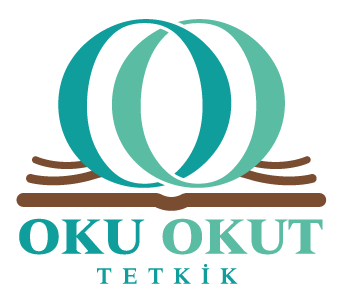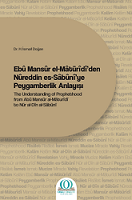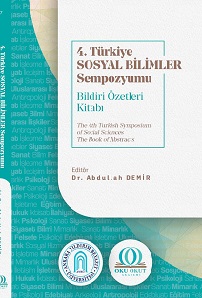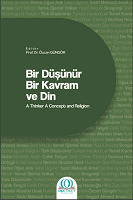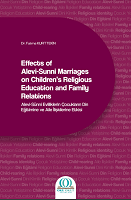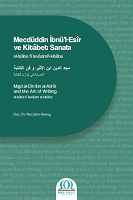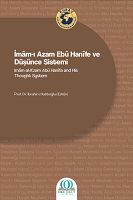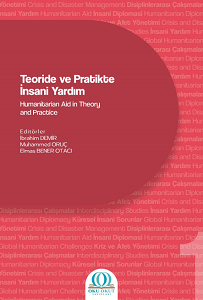Bir Düşünür Bir Kavram ve Din
Author(s): / Language(s): Turkish
Keywords: Sociology; Sociology of Religion; Turkish Intellectuals; Basic Concepts; Turkish Society;
This study examines the concepts developed by prominent thinkers in the Turkish intellectual tradition on themes such as modernization, identity, nationalism, religion, morality, social control, and the East-West civilization debate. By analyzing these concepts, the study aims to understand the social and cultural transformation processes of Turkish society. The research is organized under six main headings, focusing on the dynamic transition from the Ottoman Empire to the Republic of Türkiye, the impact of these dynamics on identity and social belonging, and the resulting social, cultural, and political breaking points. Each thinker and their conceptual framework are addressed to provide a deeper understanding of the historical, sociological, and cultural structures within Turkish society. The study’s goal is to analyze the identity crises, dynamics of social change, and the emerging social, cultural, and religious conflicts that Turkish society experienced during its modernization process. It seeks to establish a theoretical basis for understanding the foundational approaches in Turkish thought history by examining how each thinker’s conceptual contributions shaped social structures and influenced debates around identity, belonging, religion, and civilization in modern Turkish society. As such, the study serves as a valuable source for understanding the tensions and breaking points that Türkiye faced in its journey of modernization and social transformation. Modernization and Social Change Concepts The study delves into the social changes brought about by modernization through the contributions of four prominent thinkers and their concepts. İlber Ortaylı’s “The Longest Century of the Empire” concept critically examines the sociological implications of the Ottoman Empire’s modernization process in the 19th century, highlighting the complexities and struggles of this transformation period. Nermin Abadan Unat introduces the “Unending Migration” concept to address the impact of modernization and industrialization on the social fabric, shedding light on the rural-to-urban migration patterns that defined Türkiye’s societal transition. Cavit Orhan Tütengil’s “Dual Structure” concept focuses on the imbalance between rural and urban structures during Türkiye’s modernization, emphasizing how this disparity hindered social development. Finally, İsmail Gaspıralı’s “Justice” concept emphasizes the need for social justice and equilibrium in ensuring peace during modernization, stressing the importance of maintaining social balance for sustainable development. Identity, Nationalism, and Sociological Foundations Under this heading, five thinkers and their concepts are examined in relation to the quest for identity and nationalism in Turkish society. Yusuf Akçura’s “Three Policies” concept outlines three distinct models of political identity (Turkism, Ottomanism, Islamism) proposed to address the identity and political dilemmas of the Ottoman Empire during its dissolution. Sadri Maksudi Arsal’s “Sociological Foundations of the National Sentiment” concept frames nationalism not merely as a political ideology but as a sociological phenomenon that shapes identity and social belonging. Seyyid Ahmed Arvasi’s “Principles of Advanced Turkish Nationalism” presents a model of nationalism that harmonizes traditional values with the demands of the modern era. Remzi Oğuz Arık’s “Anatolianism” centers on the Turkish identity and cultural heritage from an Anatolian perspective, while Hilmi Ziya Ülken’s “Heredity” explores how social structures are shaped through genetic heritage and cultural transmission, addressing the biological and sociological foundations of identity construction. Religion, Secularization, and Laicism This section examines the works of three thinkers on the relations between religion, society, and the state. Durmuş Hocaoğlu’s “National Secularism” concept addresses how secularization in Türkiye can be aligned with national values, emphasizing the integration of religion’s social function with the modern state structure. Bahattin Akşit’s “Typology of Secularization” explores how secularization processes vary across societies and their transformative impact on social structures. Sabri Ülgener’s “Mentality Discourse” focuses on the role of religion and mentality in economic development, arguing that economic progress is closely tied to cultural and religious foundations, thereby contributing to a deeper analysis of socio-economic structures. Socialization, Morality, and Social Control Thinkers in this section analyze how individual-society relations and social control mechanisms shape the social fabric. Şerif Mardin’s “Neighborhood Pressure” concept reveals how societal control mechanisms exert pressure on individuals, shaping behaviors through social norms. Cahit Tanyol’s “Morality and Society” examines the role of morality in social structures and its function in regulating society. Özcan Güngör’s “Socialization of Objects” discusses how everyday objects play a role in individuals’ identity and socialization processes. Hüsamettin Arslan’s “Epistemic Community” concept addresses how knowledge communities form and influence thought patterns, highlighting the interplay between knowledge and social structures. East-West Dichotomy and Civilization Debates The tension between the spiritual values of the East and the materialist approach of the West has always created a need for balance in Turkish society’s identity construction. Samiha Ayverdi’s approach on “East-West Civilization” argues for the reconciliation of Eastern spirituality with Western materialism. Recep Şentürk’s “Open Civilization” emphasizes the significance of inter-civilizational dialogue, advocating for an open civilization model that embraces coexistence and diversity. Nurettin Şazi Kösemihal’s “Art and Intellectual Workers” concept examines the role of artists and intellectuals in social change, while Vamık Volkan’s “Enemies on the Couch” concept explores how the “external enemy” images function in societal identity construction, highlighting the impact of these images on the self-definition processes of communities. Overall, these thinkers’ concepts offer a multifaceted perspective for understanding Türkiye’s social structure and the effects of these dynamics on identity, belonging, and cultural debates. This study aims to contribute to the literature by providing a comprehensive analysis of the fundamental approaches in Turkish thought and how they inform the discourse on modernization, identity, religion, and civilization.
More...
